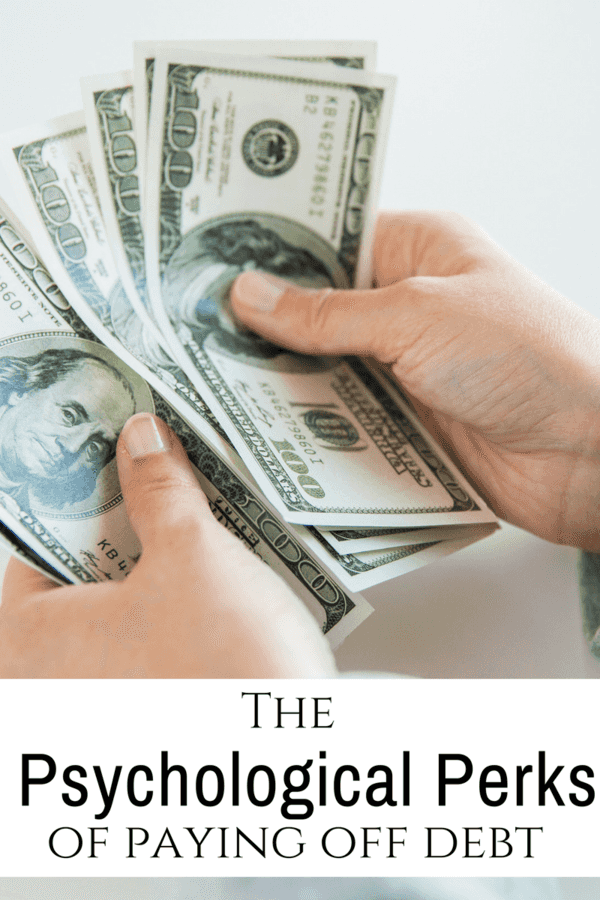
For many people, it has become the norm to have student loans that extend ten, fifteen and in some cases, over twenty years.
Going to college isn’t cheap – and unfortunately not everyone has the opportunity to earn money for college via military service. Both of us were lucky enough to earn a combined $80,000 for college through a commitment to join the military.
Although $60,000 helped us knock out our 4 year degrees, it wasn’t quite enough to cover continued education in terms of Masters programs. At that point, loans were our only option. Little did we know they accumulate fast.
Before we knew it, we had over $80K in student loan payments between us both for extended schooling – and that payment each month was tormenting. It was a drag – writing out that payment was HARD. Not only did it put a stress on us personally, it seemed to lurk over every corner of our lives, family, job… you name it, it was there.
Like many people have thousands in student loans, others have credit card debt, car loans, and even loan payments. The debt pay down process seems out of reach, daunting, and overwhelming – to say the least.
The achievement that comes from paying off your debt is amazing though – paying your debts off one by one is motivating – when you reach the last one, the end, you can’t help but want to wrap your arms around yourself and give yourself 1,001 pats on the back.
You feel motivated.
You feel like you can conquer anything.
You feel a sense of pride, self appreciation and excitement – all at once, that you committed to a higher goal that you achieved, through due diligence and sacrifice. Writing that last payment is MIND blowing.
I remember the LAST student loan payment we made, we went out to dinner to celebrate. We were just overwhelmed with happiness. We felt FREE – finally FREE.
But the benefits of paying off debt go much farther than the bank. Not only can they help return you to a balance both physically and emotionally, they will give you a new perspective on life. Here are several ways paying off your debt can improve your psyche:
#1 – Less Stress Means Better Health
When you owe buckets upon buckets of money, you can’t help but feel stressed almost constantly. That feeling like you can’t get away from it all is always there. The worry you have that you may or may not be able to make the next paying is overwhelming.
That stress takes a pretty huge toll on your body.
Stress is a huge contributor to everything from diabetes, to heart disease, anxiety, allergies, and issues with your gut health.
Paying off your debt can lead you to a better path to health – you are emotionally and physically refreshed, you feel better. You can think better, and your body feels relaxed and at ease.
#2 – Emotional Balance
In many cases, the debt that you have, or have built up, is from previous marriages – past times in your life that you might not want to reflect on. When you pay off that debt, you lift an emotional burden and constant reminder of that phase of your life so you aren’t thinking about it so often (if at all).
Paying off your debt can allow you to establish that separation between the previous person in your life (spouse, etc) – and can help you move forward to make better personal decisions.
For my husband, that time was a period of 3 years that he was away in several military schools back to back, where he had to deploy overseas, and miss seeing his 2 kids at such a young age. He missed several years of their lie that he can’t get back – thankfully we paid off our debt, but every time he looks at pictures of our oldest two , he gets really sad because he knows that he missed that time in their life.
#3 – Moving on to Bigger Things
When you are living with bills piled upon bills, it’s easy to put everything else on the back burner – whether that is having another baby, getting married to your long time partner, or even pursuing a new career.
After you pay off a mountain of debt, you now have the freedom to pursue new goals in life – you don’t have to worry that the new marriage might be affected by your massive debt payments. You don’t have to worry if the NEW career change will be enough to allow you to make payments on your debt, and you may possibly even feel better about trying for that new little one in the family.
#4 – Newfound Confidence
Things can always look great on the outside – but behind the walls of beauty can be a rather big crumbling wall. Having a massive amount of debt to repay can cause you to be hard on yourself – unforgiving too.
If you have a growling family and are looking for a new-used vehicle, the feeling that you experience when they go to run your credit can be disheartening. But if you are debt free, and have cash saved up, that feeling is amazing.
When my husband got back from deployment, we had to get a used vehicle to replace one that had been totaled in an accident while he was gone .. thankfully, we weren’t loaning money. We had saved up – and what normally would have been a trip we dread .. we went to the dealer, cash in hand, ready to rock the world.
The feeling that you can conquer anything is indescribable. For once, you are empowered.
#5 – The Vow to Stay OUT of Debt
When you make that 2, 3 or even 5 year commitment to paying off your debt, and you empower yourself to achieve your goal, you can’t imagine going back to your old habits.
Through that time, you have established discipline, and the strength of mind to avoid going back to the same habits, and faults that got you into debt in the first place. You have worked TOO hard to get back into debt.
You make a vow to stay debt free.
That attitude isn’t something that you capture when you earn money from a windfall or a lottery win though – and that is because you did not have to put in any sweat to work towards that money. It’s hard to go back into debt when you look back and remember ALL the sacrifices you made to get out of debt.
#6 – Temptations Lurk Everywhere
When you pay off all of your consumer debt, you feel as if you are on TOP of the world.
But before long, offers will start rolling into your mailbox – new credit card applications hit your mailbox like never before. After a period of a few months, perhaps you feel complacent — you have no debt, so why not buy something brand new?
A new car.
A new trailer.
Perhaps even a new plasma television…
The list could go on – you will need to learn to resist temptation to buy things you might not need. Don’t celebrate your debt free successes by going back into a situation that you will regret later.
That’s what it’s important to celebrate small milestones with small rewards – so that at the end, you don’t feel as if you have “missed out” for all that time, and need to make up for time. In other words, don’t delay gratification.
Instead, write down those things you need (not want, but NEED), prioritize the things on that list, and buy the most pressing items on that list over time, as you budget your money.
#7 – Your Relationships Improve for the Better
Paying off a debt is a rather huge sacrifice, and a long commitment – when you achieve your goal of paying off all your consumer debt, your relationships tend to grow much stronger. Through those months, and years of budgeting your money, finance talks, and continuous payments, you learn how to make sacrifices together – and thus you grow stronger – together.
When you function better as a couple, your children can see that newfound improvement – they can sense that things are better, less tense, and they are happier. You are less stressed, and in better health – and your own parents might notice that and be happier for you.
Even more, when you are in charge of your financial well-being, you can teach your children about responsible choices and they might even see the commitment you made and learn from your past decisions – your teens might even choose to make better choices than you may have to avoid having to take the same, hard road.
#8 – Your Purchase Habits Shift
One of the most random things that happens when you pay off a rather large amount of debt, is that your purchase habits shift – for the better.
Before your debt repayment, you may have been a rather huge spender. Maybe you weren’t’ a huge spender but you were an emotional spender.
Spending money triggers emotions of happiness – but it’s always short term.
Once that debt is wipe out, the relationship between money and happiness changes. You realize that purchases aren’t going to make you happy forever — you realize the happiness factor is short term. Perhaps you realize that experiences are longer lasting than things… and that debt repayment shifted your views on what is really important.




Leave a Reply
You must be logged in to post a comment.